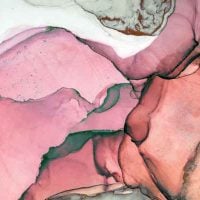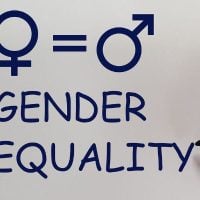Deadline: 08-Aug-25
The Earth Journalism Network is offering grants to journalists and content creators in the Pacific who have participated in The Deep Dive: Building Skills for Transformative Ocean Reporting workshops to support the production of in-depth stories, video shorts and creative projects on ocean issues affecting the region.
EJN’s new Pacific initiative, The Deep Dive: Building Skills for Transformative Ocean Reporting, responds to this gap by building capacity among Pacific journalists and storytellersequipping them with the knowledge, tools and connections to report on ocean issues with creativity, authority and a strong Pacific voice. The project recognizes that elevation of the Pacifics voice is paramount to addressing the multiple crises affecting the ocean.
The Deep Dive kicked off with an eight-part training series on ocean reporting in the Pacific, which will run until July 2025 with 24 participants across the region. The training covers the challenges to South Pacific Ocean health, and the conservation solutions currently being implemented on the ground. Sessions will focus on the science and journalism skills required to report more effectively on the ocean. Included in the curriculum is an engagement session with selected ocean champions from the Pacific, comprising Pacific leaders and ministers.
Funding Information
They are offering 13 grants of up to US$700 each to creative content creators and journalists who have participated in the Deep Dive training and are interested in producing high-quality solutions-focused ocean stories.
Program Logistics
Workshop and online seminars: Selected fellows will take part in a pre-workshop survey to assess their capacity, interests and needs, and then join a three-day virtual workshop, which will feature both joint and separate sessions. The final curriculum design will be tailored to the specific cohort and to the differing needs of creators and journalists, but could include thematic areas such as localizing ocean stories, potential conservation solutions at the policy and personal level, key concepts of ocean and conservation, the intersections with issues such as climate change and health, an introduction to international ocean treaties and frameworks, ocean science, ocean literacy, techniques to build audience engagement, understanding analytics, videography/video editing and storytelling skills, photography skills, techniques on digital tools, connecting with voices on the ground using, and more.
Content production and mentorship: Applicants will propose ideas for short-form videos or other creative storytelling methods in their application and will have the opportunity to refine these ideas and their distribution plan with support from their assigned mentors. Content produced by the fellows will also be shared on EJNs website and social media channels. Fellows will be expected to monitor and report on their engagement and reach during the program.
Peer learning: Fellows will have the opportunity to share content, experiences, strategies and lessons with each other and with EJN staff as part of regular sharing sessions. Journalists and creators will be encouraged to collaborate.
Safety: They encourage selected participants to follow public health regulations and best practices for local disease outbreaks if recording content in public so you do not endanger yourself or the people you’re speaking to. They also encourage you to follow best practices on physical and digital safety.
Language of publication: Content can be produced in any language. They encourage the production of content in the language that resonates best with your audience; However, applicants who intend to produce content in their local language should also provide English subtitles or captions for wider reach.
Acknowledgement of EJN support: Content produced as part of this training and grant opportunity should acknowledge EJN support verbally or in writing by including this tagline: Produced as part of @earthjournalisms #EJNDeepDive. Exceptions may be considered on a case-by-case basis.
Republication rights: Internews EJN, its partners and the grant funder have the right to freely distribute all content produced as an output of this program.
Eligibility Criteria
For this call, they are only accepting applications from journalists and content creators based in the Pacific who participated in the Deep Dive training.
Social media content creators should actively and frequently post short-form videos on TikTok, Facebook, YouTube, Instagram, X or other leading social media platforms, relating to topics such as lifestyle, social issues, travel, science, economy, politics, culture, environment and health. Creators should not be currently reporting for any media outlets; former journalists are eligible. Prior content focused on ocean or environment is not a requirement, however, an interest in linking your work to biodiversity issues is key.
Journalists should be on staff at a media outlet or freelance. Journalists should have an active presence on TikTok, Facebook, YouTube, Instagram, X or other leading social media platforms, but there is no audience size requirement (an active presence could include posting at least once a week and/or regularly creating video or text content about your journalistic projects). Prior experience as a content creator is not a requirement, however, an interest in increasing your social media skills is key.
For the purposes of this grant opportunity, they will accept applications in English only. Applicants must either have a working understanding of English or have a translator available to assist with communication with Internews staff. However, creators and journalists can produce work in any language.
EJN reserves the right to disqualify applicants from consideration if they have been found to have engaged in unethical or improper professional conduct, including, but not limited to, plagiarism and/or submitting AI-generated content as their own.
Judging Criteria
- Applicants should consider the following judging criteria when devising their pitches.
- Selection of content creators will be based on:
- A consistent track record of producing short-form video content.
- Selection of journalists will be based on:
- A consistent track record of reporting in-depth stories for their media outlets, an added advantage if its on environmental topics but not a requirement.
- An active social media presence, such as posting at least once a week and creating video or text content about your journalistic projects.
- All applications will also be judged using the following criteria:
- Relevance: Do the content ideas outlined in the application meet the criteria and objectives of the call? Is the main idea, context and overall value to the target audience clearly defined?
- Angle: Do your ideas for content bring new insights or offer a fresh angle on biodiversity issues?
- Impact: Do your pitches seem compelling? Are they likely to inform and engage, draw attention, trigger debate and urge action?
- Innovative storytelling: The use of creative storytelling approaches, narrative styles and/or data will be considered a plus.
- Motivation: Demonstrated interest in using social media to produce impactful content on ocean and clear plan to continue producing this kind of content following the fellowship.
- Availability: Selected fellows will need to take part in the pre- and post-workshop surveys, the Deep Dive virtual training and all peer learning sessions. They must commit to producing and disseminating at least three pieces of content by November 2025.
For more information, visit EJN.









































